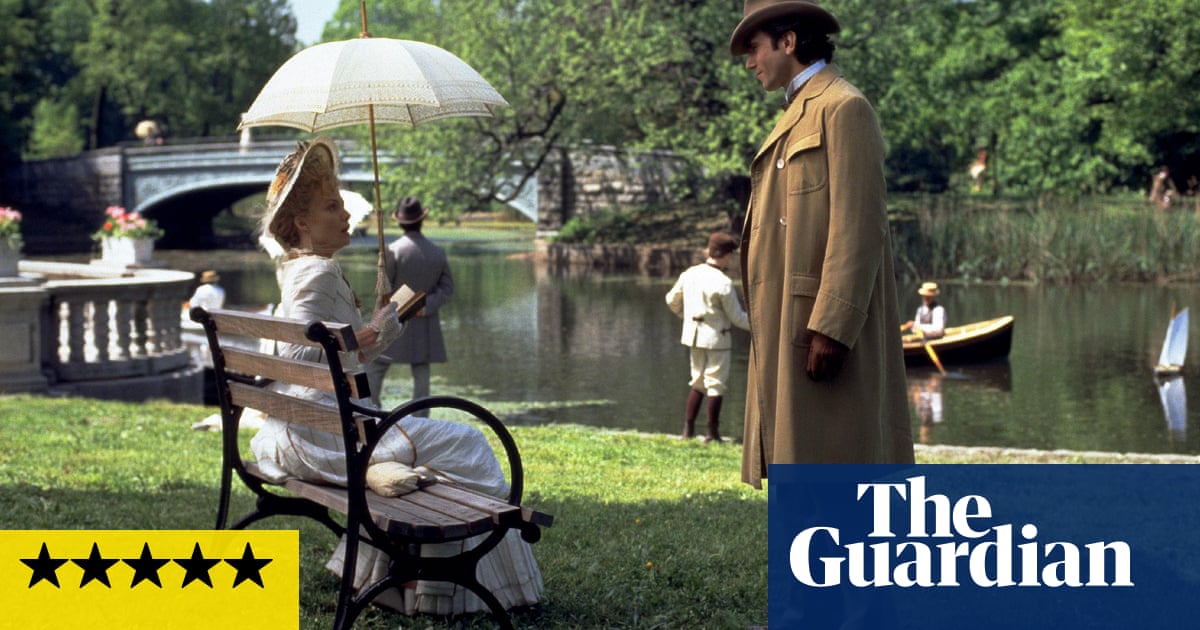
Everything about the run-up to Star-Crossed, Kacey Musgraves’ fifth album, suggested high drama. She graced glossy magazine covers before she had released any music, promising an album conceptualised around Greek tragedy, after a revelation that arrived while she listened to Bach. There is also an accompanying film starring Eugene Levy and Princess Nokia. This level of pop infrastructure makes partial sense. Musgraves won the Grammy for album of the year with her last record, 2018’s Golden Hour, which refracted tender country songwriting through wide-eyed psychedelia and prompted speculation about her pop-star potential. But all this pageantry feels inversely proportional to the bruised peach of an album that Musgraves cradles here.
On Golden Hour, Musgraves basked in newlywed life with fellow country musician Ruston Kelly; three years later, they’re divorced. As a songwriter, the 33-year-old small-town Texan made her name by challenging traditional southern mores about fallen women, using her sly wit to defend burnouts, queer kids and refuseniks. There was a sense of victory to it, especially when she also transcended the small-minded country mainstream that shunned her and became a proper star. Star-Crossed reckons again with idealism – the perfect spouse, the loved-up selfie – but this time Musgraves claims little vindication at defying those roles; more a sense of disappointment at not being able to live up to them, despite how they diminished her natural confidence, followed by one of relief at being free to dream bigger again.
Star-Crossed isn’t a whole-cloth reinvention like Golden Hour was, which suggests the real-life limits of a fresh start after a devastating emotional rupture: these are experiences to ruminate and build on, not simply brush aside. So it leans into its predecessor’s acoustic songwriting and cosmic, retro-futurist production, a match that felt both stunningly fresh and like perfect kismet in 2018. This time the revelations are fewer, though just as potent when they come.
Good Wife finds Musgraves ill-suited to the role of its title (or is the problem the needy man she realises she married?), and its ambitious arrangement strafes against it: she embraces vintage soul that ticks and bristles, sending distorted synth lines searching amid dreamy atmospherics. “I just wanna be a good wife!” she cries, piercing and spliced by Auto-Tune, as if she were confessing this fact into a bathroom mirror and letting the shock of it ring in her ears. The equanimous Easier Said has some of Frank Ocean’s knack for making spaced-out wistfulness feel intimate: Musgraves admits that she’s “never been afraid to shine” yet felt lost in her marriage; occasional rounded plucks of banjo bubble up, like a lump in the throat that she’s trying to suppress.
If there’s a fresh direction here, it’s to more straightforwardly poppy songs that make a virtue of Musgraves’ sweet melodic tendencies. “I’m your cherry blossom baby, don’t let me blow away,” she sings on the beautifully evanescent Cherry Blossom, where happiness is tinged with darkness, a Musgraves signature. It’s followed by Simple Times, its inverse, Musgraves sounding dejected as she admits “being grown up kinda sucks”. She longs for the simplicity of teenage life, filled with lipgloss and ragers, and the song echoes the coffeehouse acoustics of her Y2K-era adolescence. There’s a vacant beat in the chorus where a conventional pop star might have yelped “hey!” This phantom pop punctuation emphasises the gut-punch: there’s no celebration in defiance to be had here.
Breadwinner is equally withholding. It’s perfect country songwriting, lines tightly nestled as Russian dolls: “He wants a breadwinner / He wants your dinner / Until he ain’t hungry any more,” Musgraves sings over flickering funk reminiscent of early Phoenix. But she tempers an obvious post-divorce anthem by sounding weary, never triumphant, keeping the production understated. Tellingly, she was in two minds about putting it on the album in case its seductive defiance warped the overall emotional picture.
But if there’s a reason for Breadwinner to stick out, it’s for the satisfying precision of the songwriting on a record that often blunts Musgraves’ usually acute pen. Some of the melodies and benign production, frequently inspired by turn-of-the-millennium white pop, are so indistinct they could be sung by Dido; the often zoomed-out lyrics come to feel like window dressing around a partial view. Presumably it’s to protect the two famous parties at its centre, and fair enough. But in terms of sentiment, If This Was a Movie and Angel (ie “if I was an angel”) are essentially the same song. Hookup Scene has the intimacy of a voice note, but its chorus is pure, saccharine homily, Musgraves advising anyone in a rocky relationship to hold on because “you might not even know that you don’t have it so bad”.
The tragedy-influenced structure can’t help but feel pat too, moving from the choric, dramatic title track that sets the scene, through sadness to disillusionment, and finally the self-explanatory optimism of Keep Lookin’ Up, What Doesn’t Kill Me (had “better run”) and There Is a Light (“inside of me”). All three are lovely, the first a cosmic appreciation of wider horizons, the last a glowing mantra that spirals off into a vibrating jazz flute freakout. But the tidy landing constrains otherwise appreciably ambiguous songwriting that feels true to the wayward flux of Musgraves’ feelings – of the confusing aftermath of divorce, peppered with relief, mystery, disappointment. It feels like the first time this iconoclast has stuck to the script.












